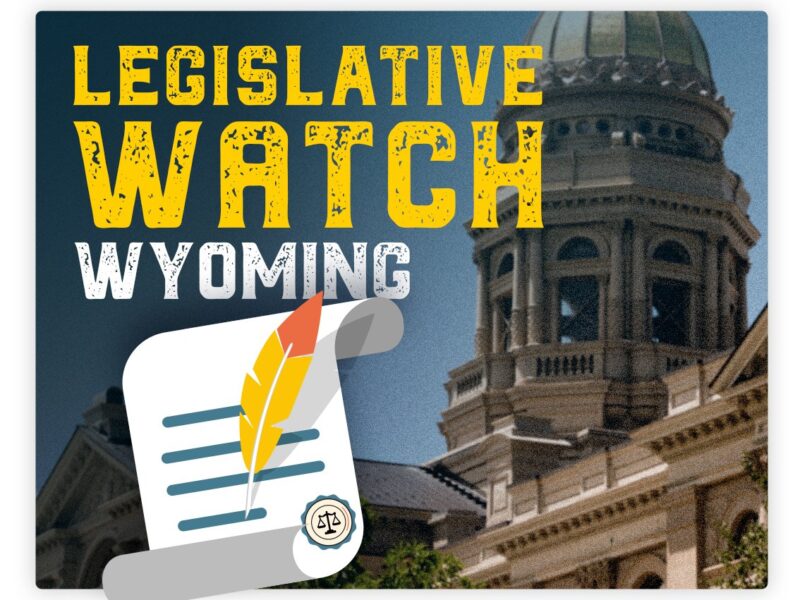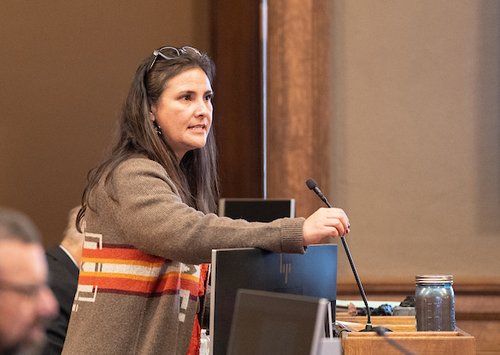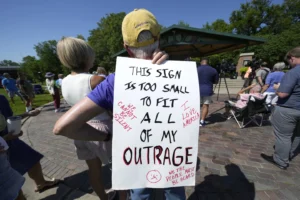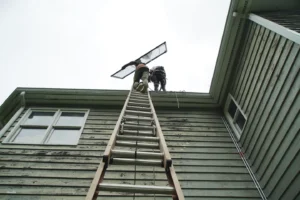LEGISLATIVE WATCH WYOMING: Senate Passes Bill to Codify the Indian Child Welfare Act as State Law
Bill advances through the legislature as the act faces legal challenges
- Published In: Politics
- Last Updated: Jan 25, 2023

By Shen Wu Tan
Special to the Wyoming Truth
The Senate on Tuesday passed a bill that would codify provisions in the Indian Child Welfare Act (ICWA) as state law ahead of the Supreme Court’s impending deliberations about the constitutionality of the federal act.
Lawmakers voted 20-11 on Senate File 94, also known as “Federal Indian Child Welfare Act codification.” The legislation, sponsored by Sen. Affie Ellis (R-Cheyenne), codifies ICWA into Wyoming statutes and outlines requirements and procedures for placing Native American children in shelter care or for adoption.
“If we don’t have this on the books, there will be confusion I think among our state agencies about whether or not they should still provide notice to tribes, all the protections they provide to Indian parents should they still do that or not be doing that,” Ellis told her fellow senators on the floor.

“So, this prevents that confusion from being there by saying, ‘Nope, we are going to continue doing what we’ve done….,’” she continued. “This really is an important stopgap to make sure that those kids don’t fall through the cracks through confusion, which is out there, which happens when the Supreme Court makes big decisions that are huge departures from prior precedents.”
The bill states that a Native American tribe has exclusive jurisdiction over child custody proceedings involving a child who is a ward of a tribal court or who lives within the reservation of the tribe, except where jurisdiction belongs to the state under federal law. For court cases involving a child who doesn’t live on the reservation of its tribe, the state court can transfer jurisdiction of the court proceeding to the respective tribe if there are no objections from the parents, the Native American custodian or the child’s tribe.
Under the legislation, the “Indian custodian of an Indian child and the Indian child’s tribe shall have the right to intervene in any state court proceeding for the shelter care placement of, or termination of parental rights, to an Indian child.”
Last year, the Supreme Court held court proceedings in the Brackeen v. Haaland case in which several prospective adoptive parents and the state of Texas are challenging ICWA. In 1978, Congress passed the law in response to the removal of Native American children from their homes by child welfare agencies and their placement into homes with no tribal connections.
D. Lynette St. Clair, a linguist and member of the Eastern Shoshone Tribe, told the Wyoming Truth that society isn’t helping Native American children by placing them in non-native homes.
“I think placing them in homes of people that are not from their own communities [who don’t] speak their own language, I think that sets them up further down the road for all of these questions,” St. Clair said. “As a language advocate, I think it’s really important that our babies be placed in homes that reflect their own values and Indian culture.”
State child welfare and private adoption agencies removed an estimated 25% to 35% of all Native American children from their homes, research has found. Of those, about 85% were placed outside of their families and communities before ICWA was enacted in 1978, according to the National Indian Child Welfare Association.
The ICWA provides guidance for cases of child abuse and adoption of Native American children. The act also establishes a preference for children to be placed with extended family members or with Native American foster or adoptive families.
Sen. Tim Salazar (R-Riverton) said he received phone calls over the weekend from constituents who have concerns about the legislation.
“I wish we had more time, I really do,” Salazar said, who voted no on the bill. “This is clearly far more complex than my knowledge spans with regards to this issue. At some future time, I hope that the legislature will dive into this issue more in-depth because we all are concerned obviously about children, our children in this state, but I am not at all 100% gung-ho on this bill.”
The bill now moves to the House for review.













